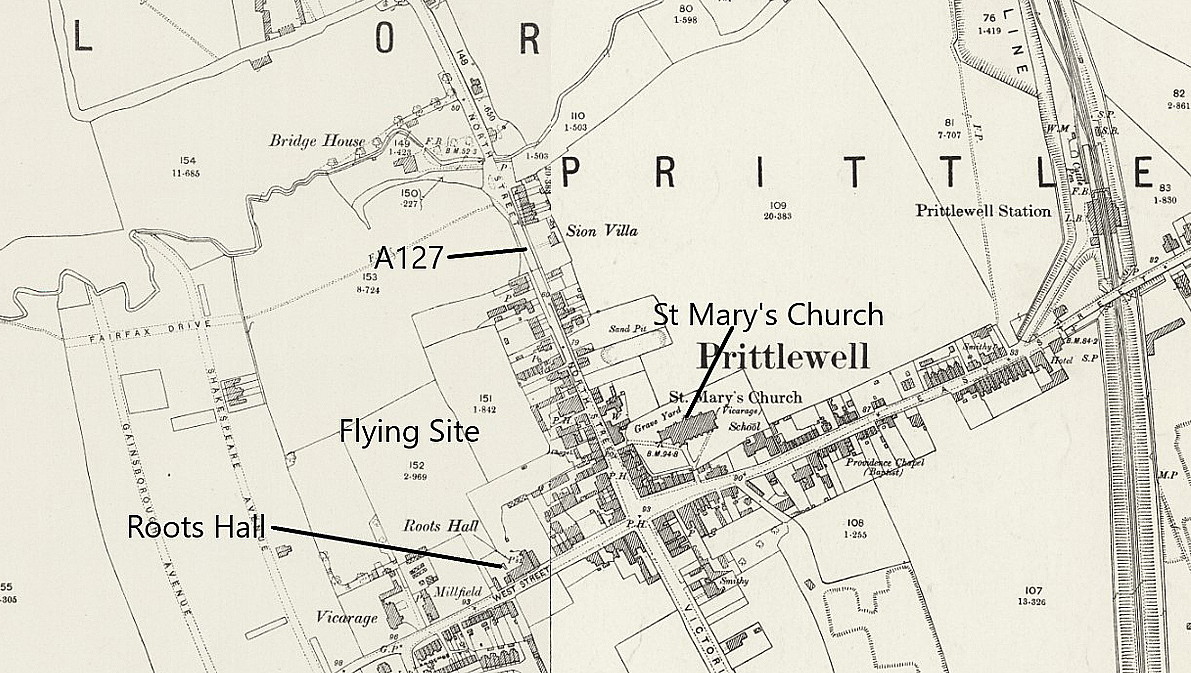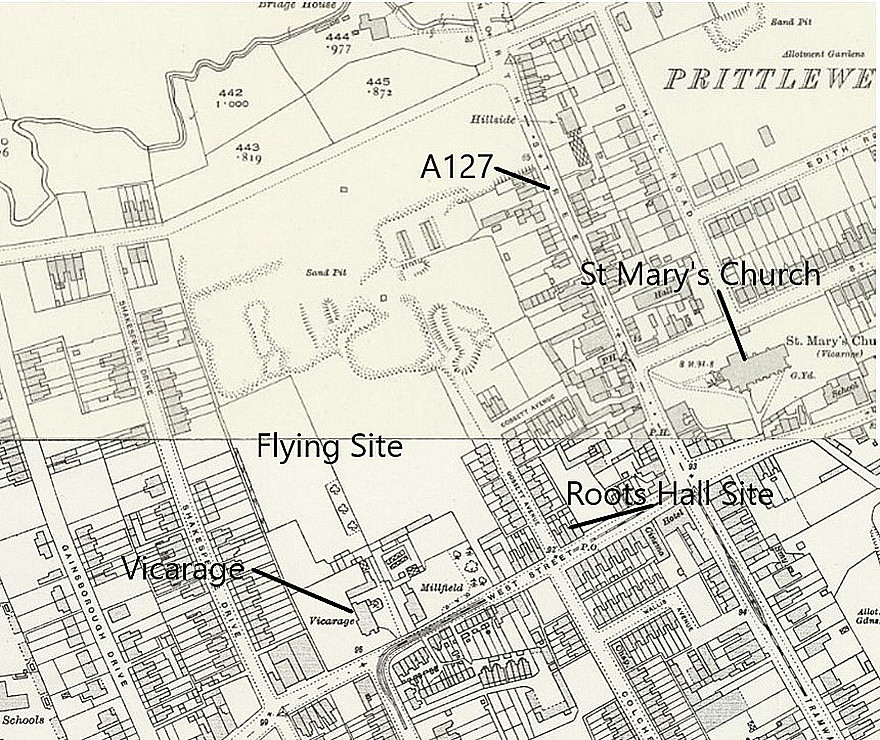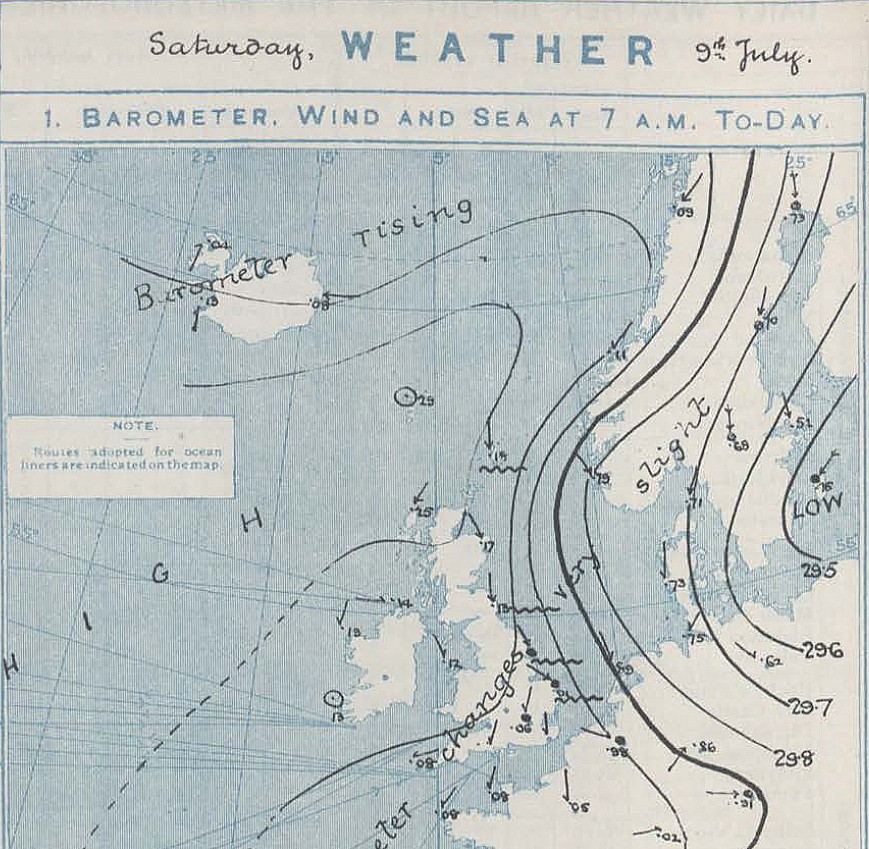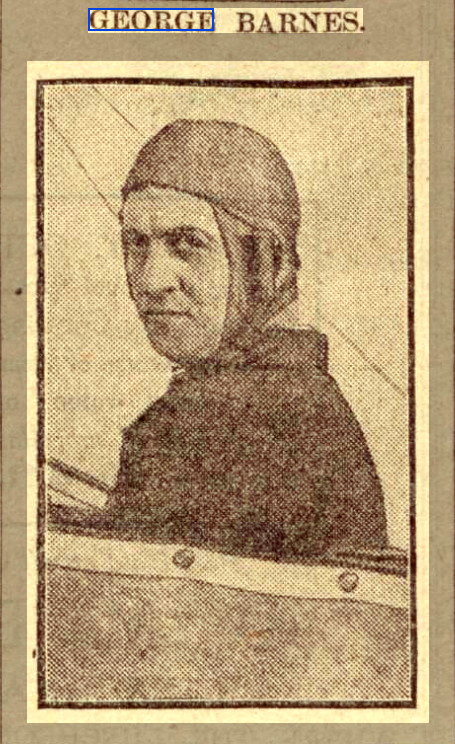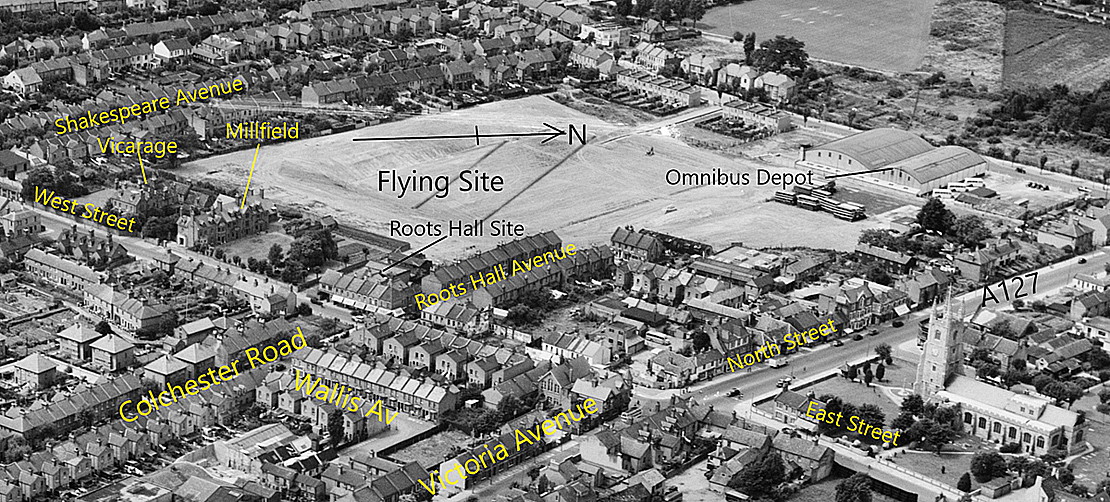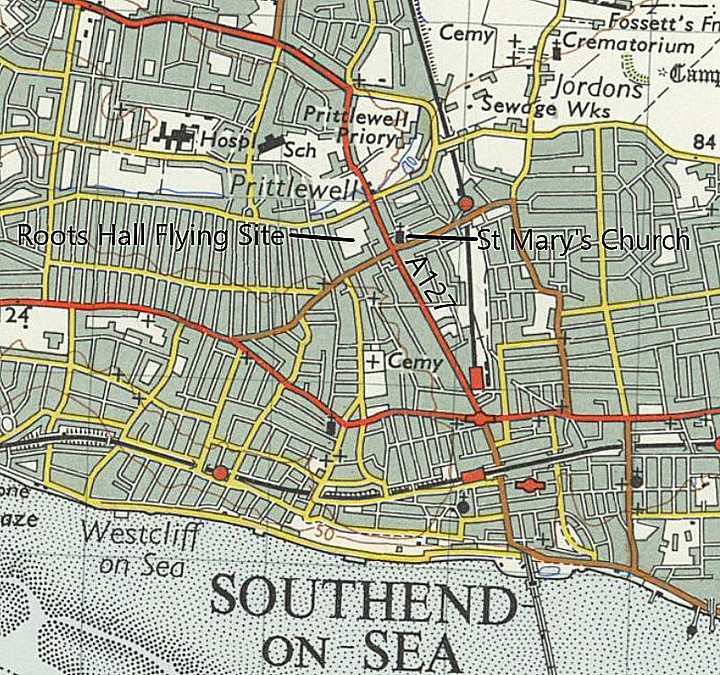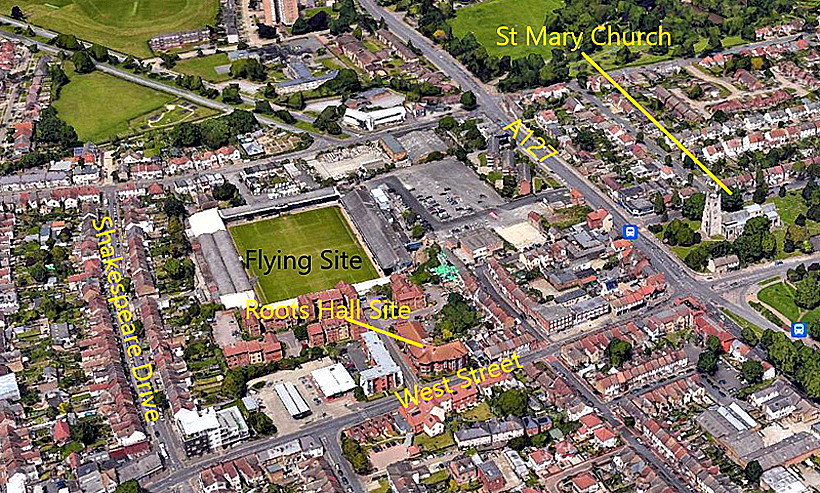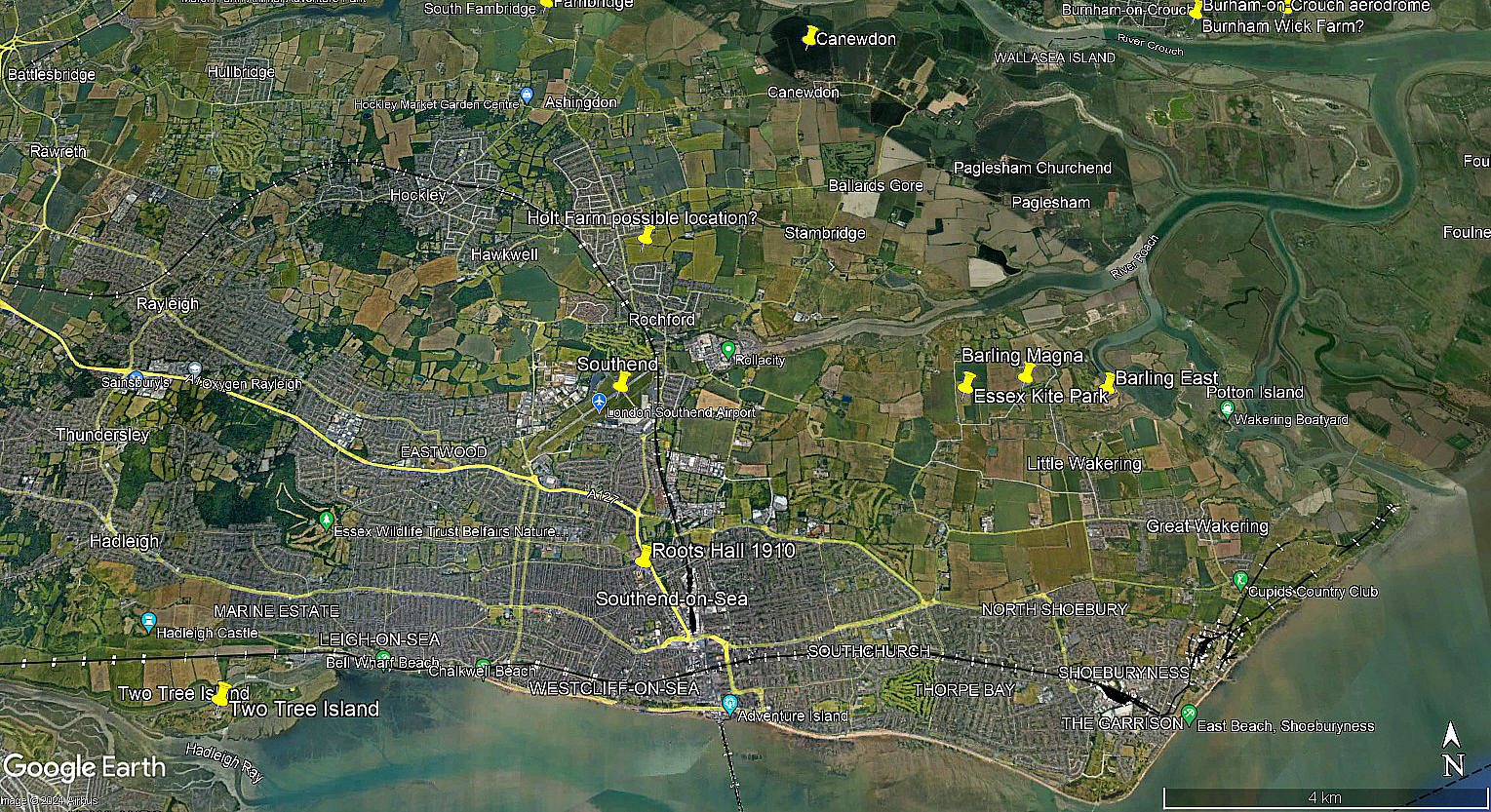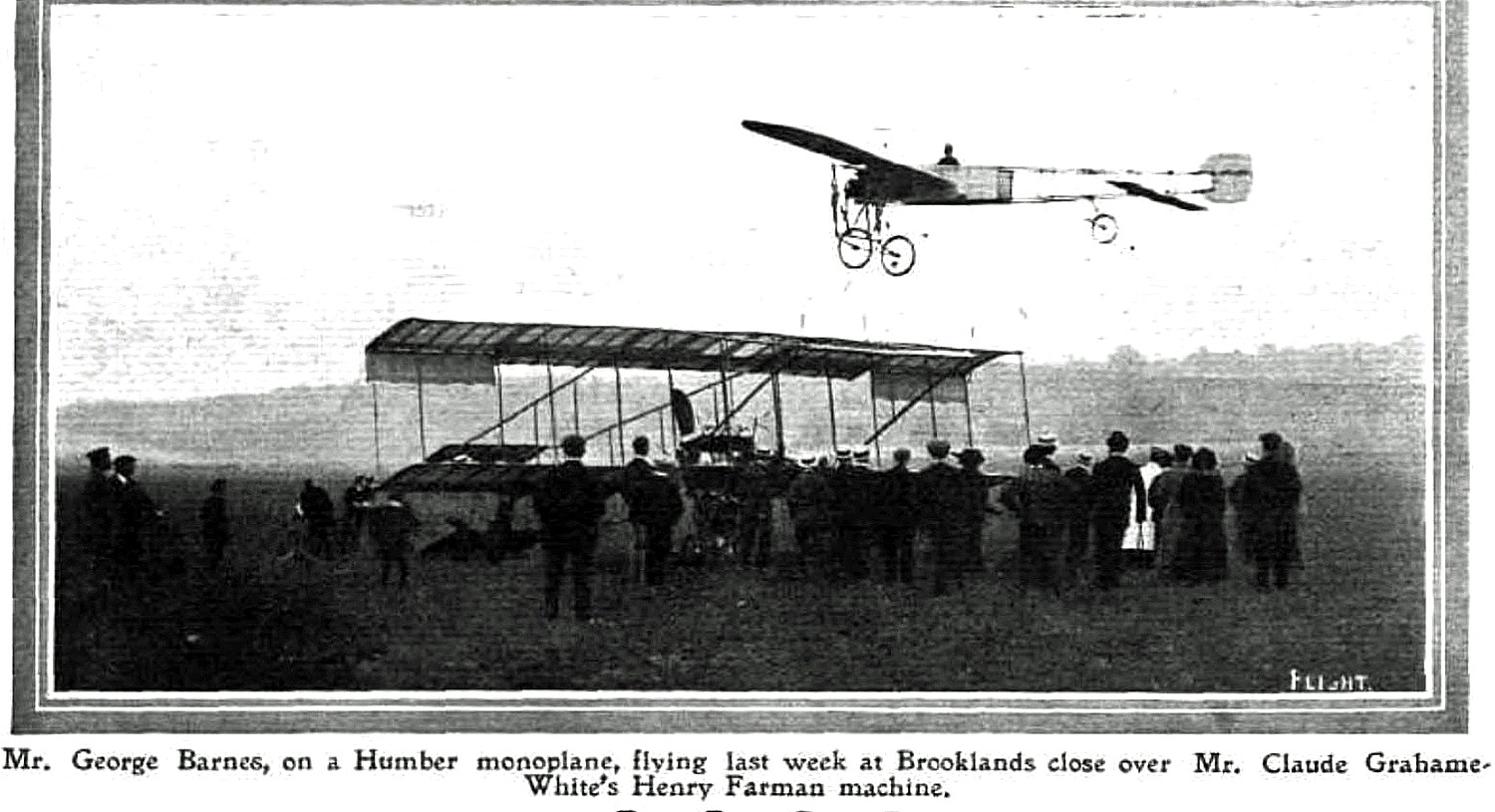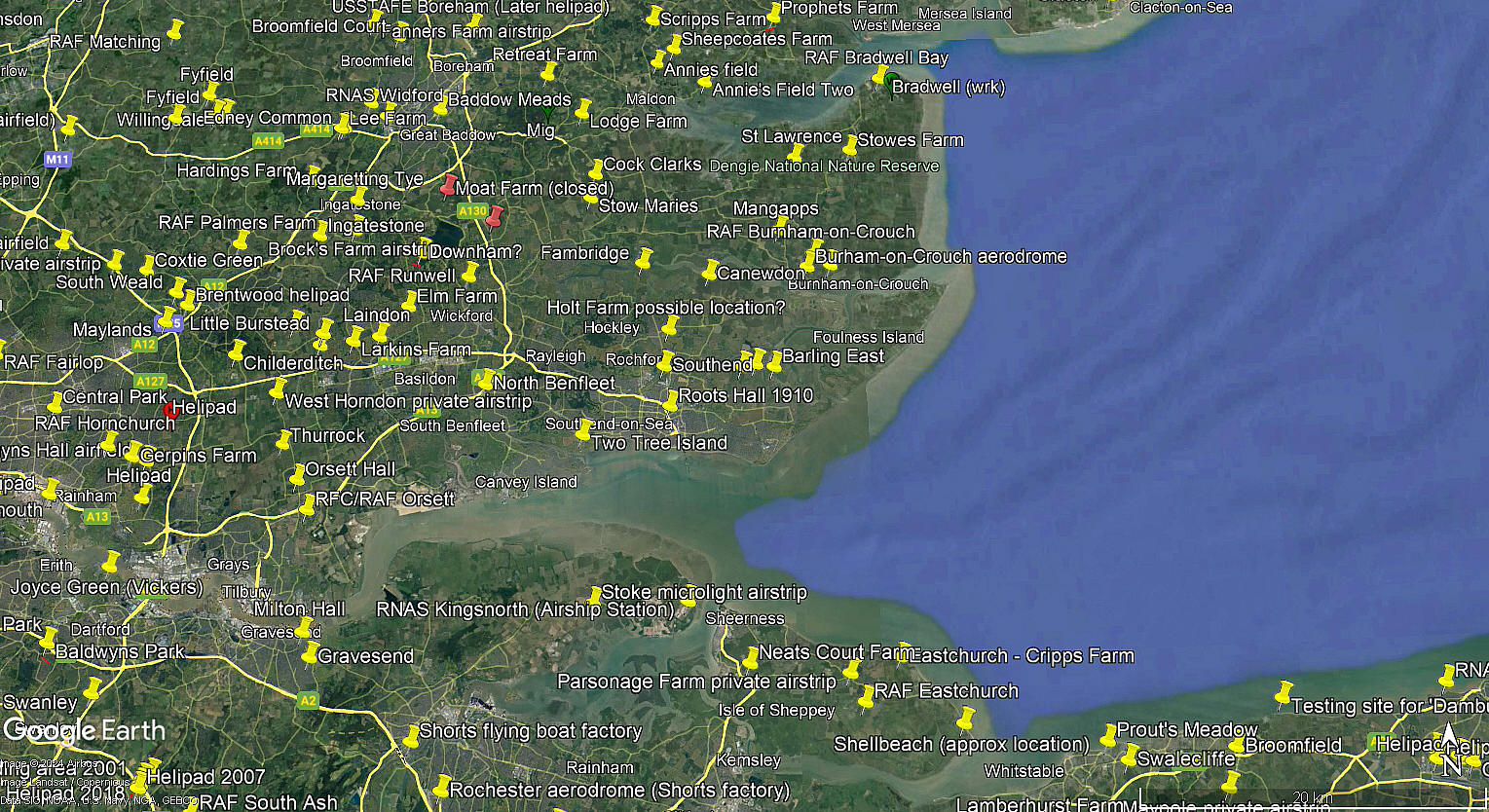Root Hall
ROOT HALL: Temporary aerodrome
Operated by: Mr George Barnes
Location: W of the A127 in Prittlewell, just NW of Southend-on-Sea town centre. Now the Southend football ground
Period of operation: 9th July 1910
A MICHAEL T HOLDER GALLERY
We have Mike Holder, a great friend of this 'Guide', to thank for both discovering this location and providing the maps and pictures etc.
The excerpt is from Southend Timeline.
Photo One shows George Barnes on his Blériot XI. The Synoptic Chart shows how strong northerly winds were affecting this area that day. Photo Two was published in the Dundee Courier on the 23rd September 1910.
Photo Three was published in Flight magazine on the 25th June 1910. The local area and area views are from my Google Earth © derived database.
NOTES: The Blériot XI had a top speed, it is claimed, of 47mph (76kph). However, a wide variety of factors could very easily reduce this performance. In no particular order; How well was the aircraft rigged? How efficient was the propeller - both in design and condition? The condition of the engine and how well was it tuned? How skilled was the pilot in keeping the aircraft well trimmed and flying in balance?
Even if all these factors were up to scratch, it is clear that even a moderately brisk breeze, let alone some moderate turbulence, could have quite a dramatic effect. Which is why, to a large extent, most pilots with limited experience tended to fly in the early morning and evening when, as a general rule, conditions are much more likely to be calm.
On the 21st June 1910, George Barnes flew a Humber monoplane from BROOKLANDS to gain his Royal Aero Club's Aviator's Certificate No.16. But it appears, he was already employed by the Humber company as a pilot! Presumably this is when the photograph (above) published in Flight magazine was taken? So, presumably in those days he regarded himself as being a quite accomplished pilot, experienced enough to perform an exhibition of flying in public, as displays were usually called, at ROOT HALL on the 9th July.
ANOTHER ASPECT
Something I have long found of interest is the phenomenal rate of urban expansion, or sprawl, that had been occurring even in small towns such as Southend-on-Sea. The local maps (above) from 1913 to 1920 bear testiment to this. Thank heavens such maps still exist as time and time again in compiling this 'Guide', locations which these days seem quite impossible to have been used, were then in fairly open spaces.
We'd love to hear from you, so please scroll down to leave a comment!
Leave a comment ...
Copyright (c) UK Airfield Guide















